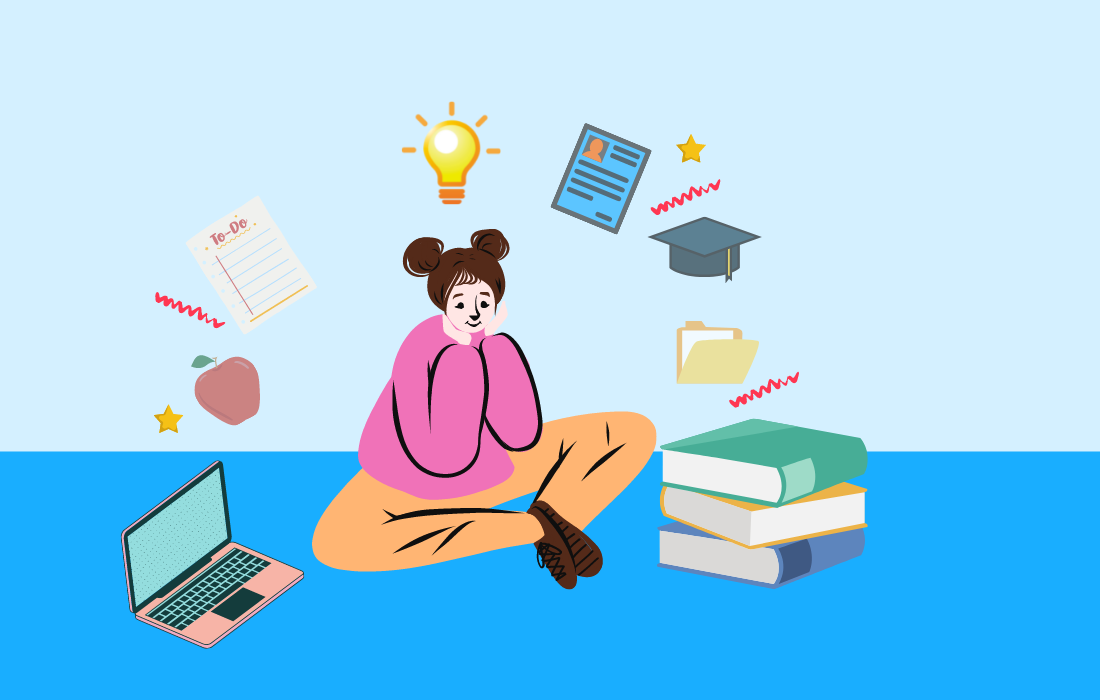
I’ve always thought of myself as someone who did well in school despite carrying the classic academic shortcoming of high-functioning procrastination — until I reached my first year in university. The bump that my academic career has gotten into is very much preventable, and I want to share with you what I have learned during this first year of university.
Through doing last-minute assignments, pulling all-nighters and getting bad grades along the way, I’ve come to realize that my questionable work ethic has done damage to my grades while bombarding myself with an exponential amount of avoidable work.
This brings me to my first point of advice: Do not procrastinate.
High school is easier than university — even students like me who had a questionable work ethic might scrape by. So given the fast-paced university term of typically just over three months, along with commitments like work or extracurricular groups, it’s crucial to stay on top of schoolwork.
If I were to do it again, I would make sure to complete my school work in chunks and review the lecture material incrementally each day.
Not only does this minimize your stress, but your workload will be a lot lighter, leaving you extra time for yourself. Nobody likes feeling enslaved to last-minute assignments.
I know that stressed students with multiple personal and professional commitments are extra tired from our energy-draining lives. It can be so tempting to surf the internet when you get home or collapse on the couch from exhaustion. But if you don’t force yourself to study, the majority of your work may remain untouched, and your grades will suffer as a result.
Aside from developing sound study habits, please also take care of your mental health. If that means dropping classes because there is no way of improving your grades without compromising your well-being — I recommend that you do it. If an elective class feels hard and boring, you are by no means obligated to take it.
This piece of advice might not resonate with traditionally high achievers who feel that grit can overpower any struggles in a class, but is it worth taking five classes if you are losing sleep every night?
University isn’t a sprint. If you need to take a break to refresh yourself, please do so. Overworking yourself long-term will cause burnout and lead to mental health problems.
If you are dropping a class, I want to emphasize that you should do so in the first two weeks of the term so that it does not appear on your transcript as a withdrawn class marked with a “W.” Even though I found lectures to be particularly difficult and boring from the beginning, I believed that the magic of perseverance would pull me through — it didn’t.
This belief resulted in me overexerting myself each weekend, but still doing very poorly in the midterms. In the end, if I had put my efforts elsewhere to improve my remaining classes and had decided to drop the class earlier, then I would no longer have that “W” on my transcript.
Lastly, don’t tie your self-worth to your grades. Falling into this trap can diminish the real allure of attending university, which is to fuel our intellect through learning.
This counterproductive idea leads to test anxiety and procrastination from the fear of failure, which also will inevitably hurt your academic performance.
If you feel you are stuck in the hopeless trap of constantly seeking external grade validation, and it’s interfering with your life, seeking professional help from the Student Wellness Centre or Access and Equity Services might help.
I think that linking self-esteem to grades is sadly quite common in achievement-oriented communities like universities. In my experience, these communities tend to make snap judgments about students suffering from poor academic performance, even when it’s not entirely their fault. Luckily, this way of thinking can also be prevented if we reorient our line of thinking.
Next time you prepare for a final, try focusing your energy on individual study sessions instead of worrying about the results. That way, you’ll do considerably better on the exam, without the intrusive thoughts creeping into the back of your head. Even if you don’t do well, you’ll achieve a more proactive way of thinking and behaving that can foster hard work in the long run, leading you to perform to the best of your ability.
As human beings, we deserve to thrive and pursue our happiness regardless of our academic performance. Think of those healthy relationships closest to you — is their worth based on grades? We should be prized as unique individuals that can bring our personality, tastes and experiences to our communities.
My mistakes were entirely preventable if I had started the term stronger — and no one should suffer the demoralizing two months I went through. I hope that my advice can offer bits of insight on how to remain an all-around successful student where you have fun and enjoy learning while being kind to your mental health.
—
This op-ed was written by a University of Saskatchewan undergraduate student and reflects the views and opinions of the writer. If you would like to write a reply, please email opinions@thesheaf.com. Annie Liu is a first-year undergraduate student studying at the College of Arts and Science.
Graphic: Kanika Gupta
Leave a Reply